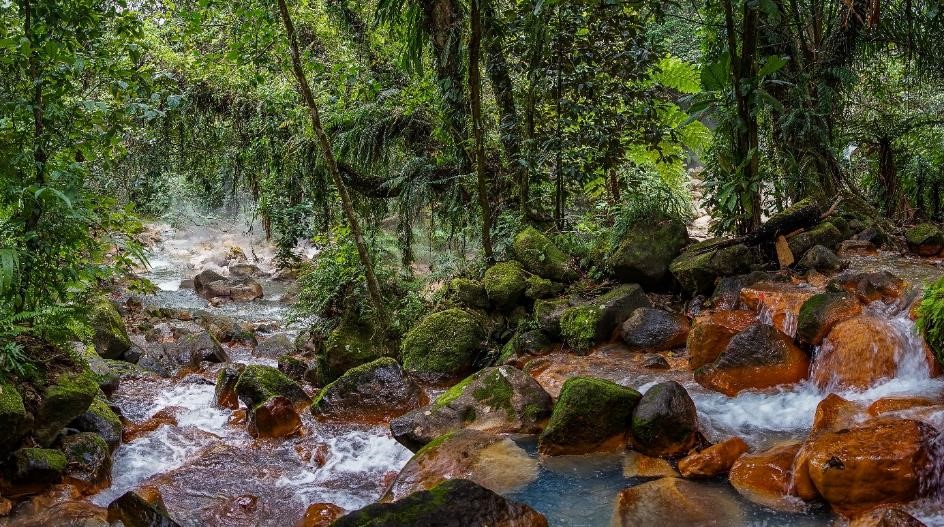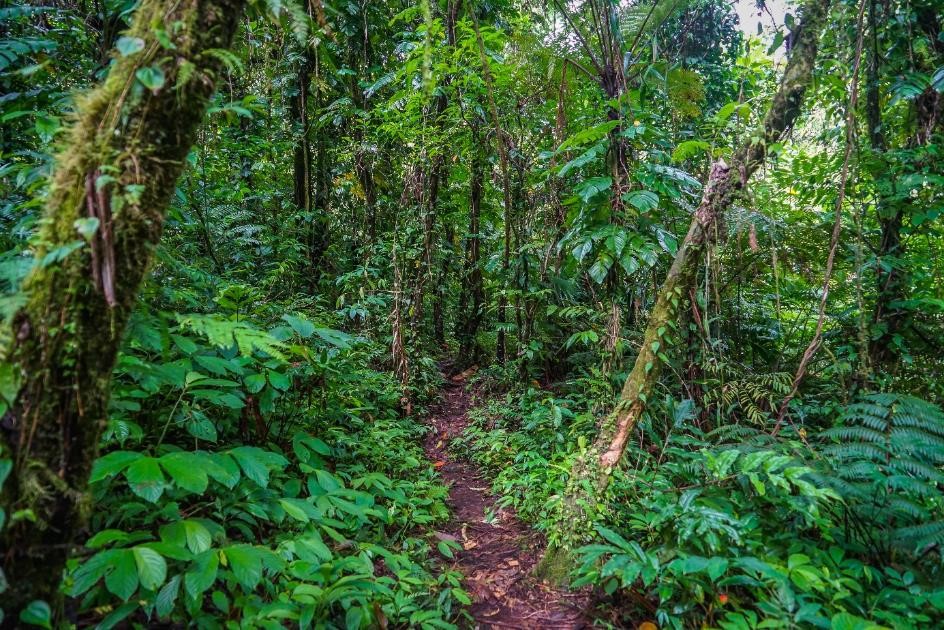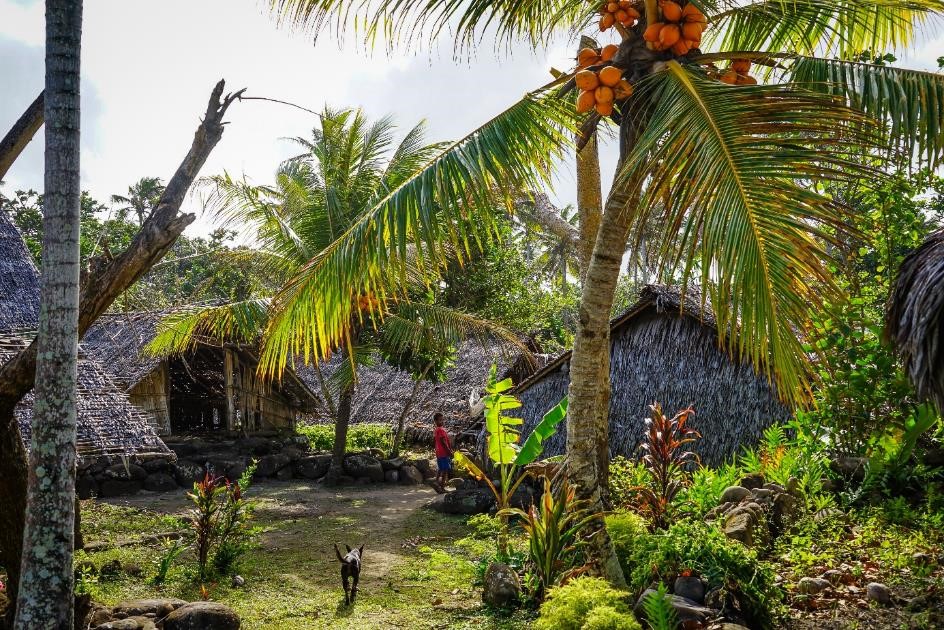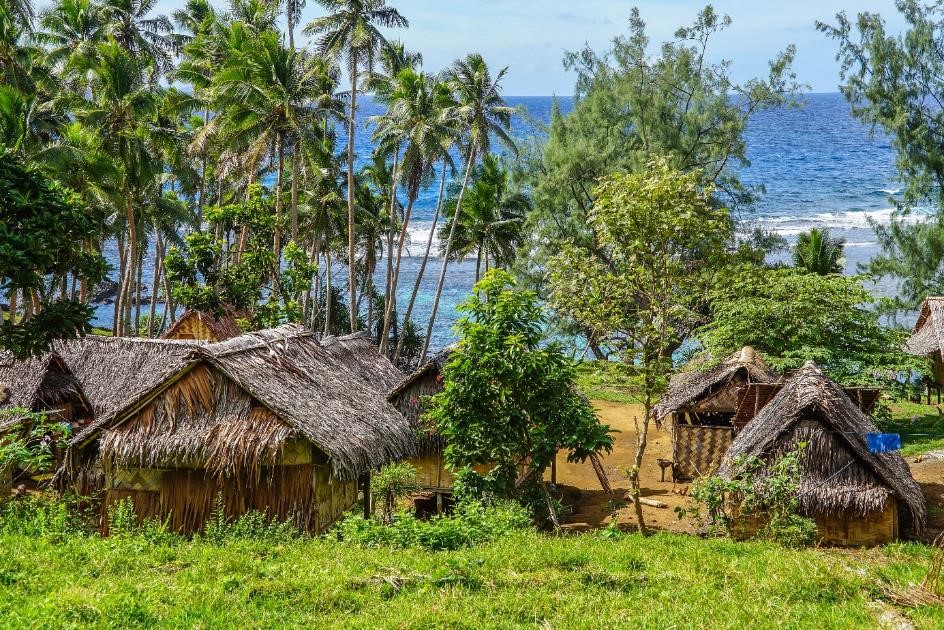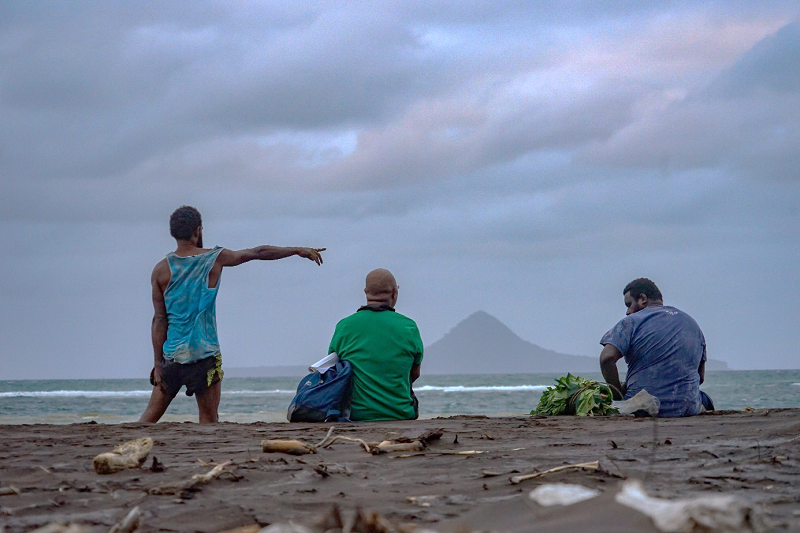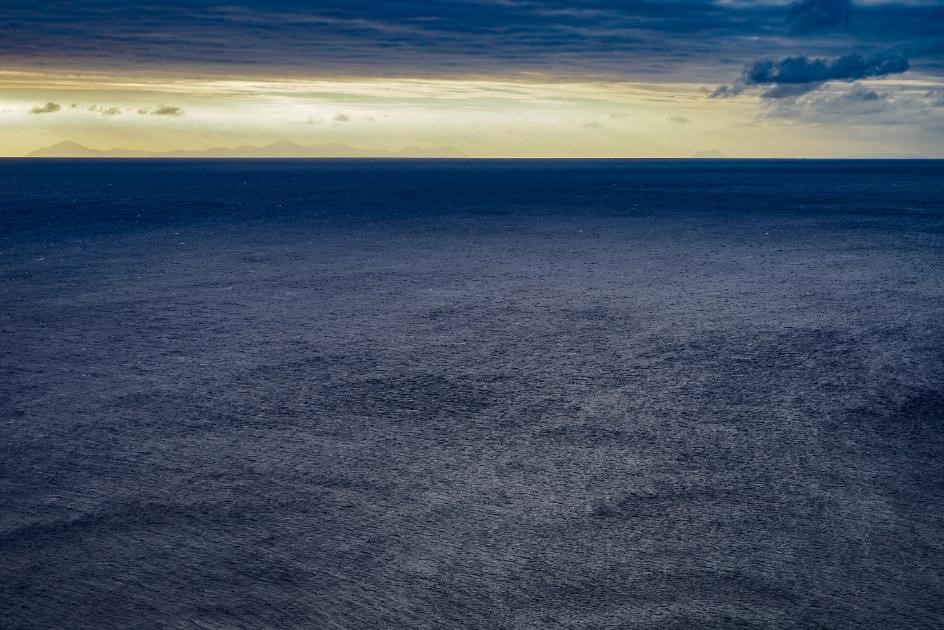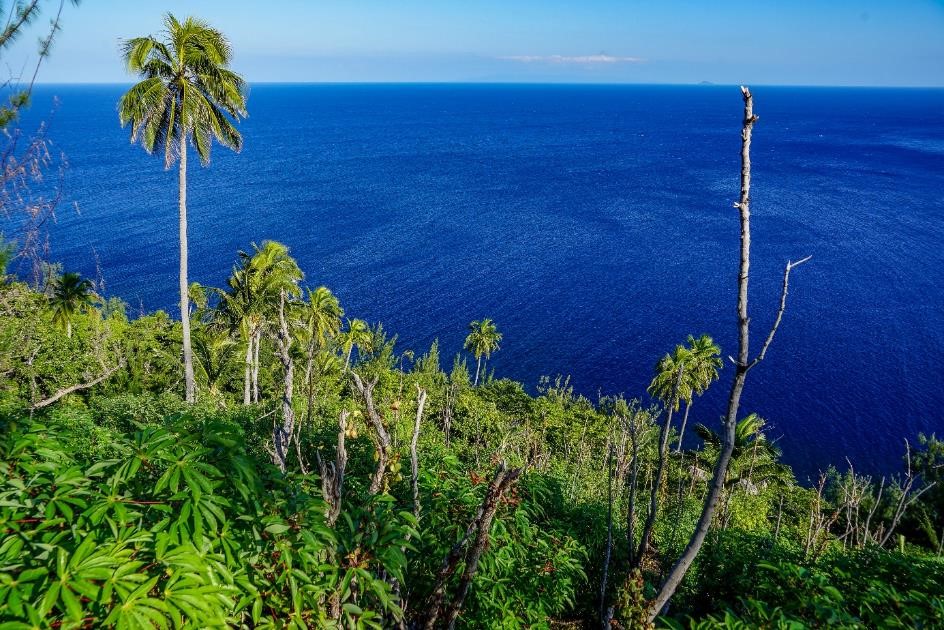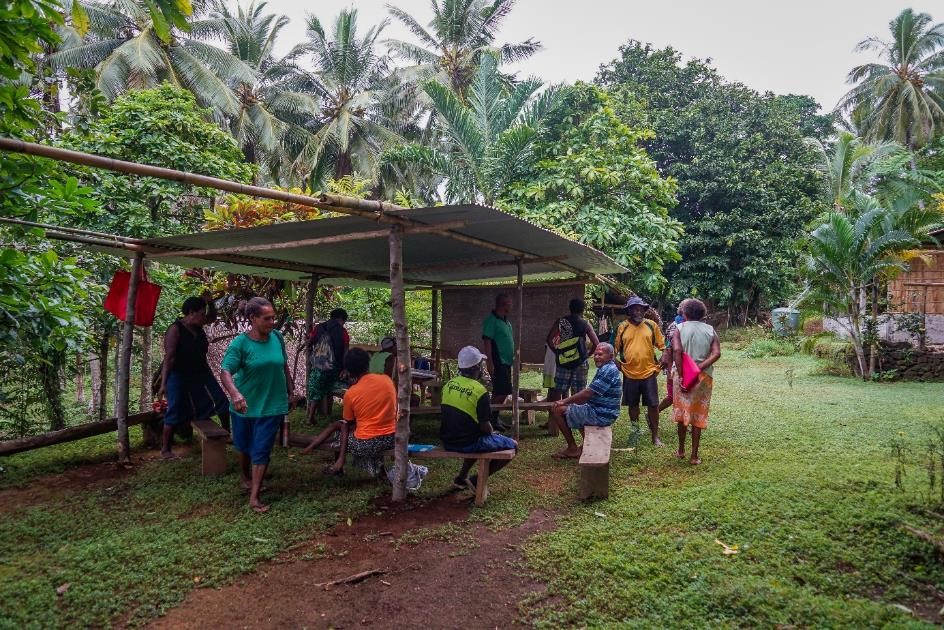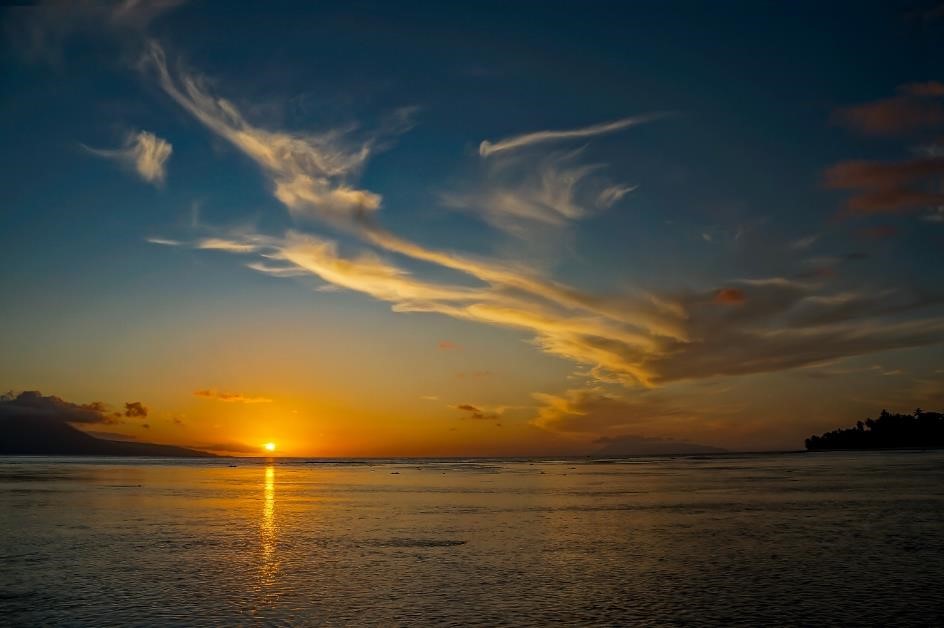Slowly but steadily, the local style Banana Boat fought its way from wave to wave. "It is definitely not the best time for this crossing" the boat driver said. The other four passengers nodded quietly while the next wave swept over us. At the same time, it started to rain and Vanua Lava, the island from which we started 4 hours ago, disappeared suddenly. And Mere Lava, our destination, had not yet appeared on the horizon. As if the rain and the waves didn't make our trip difficult enough, the engine started stuttering and finally switched off completely. Our group started to laugh and I noticed some nervousness not only in my own laughter. “Why had we choosen this remote island again?”, I asked myself. Daniel, my companion from the Department of Agriculture, had recommended it to me. It is one of the few islands in the Banks Group, he said, where traditional farming is still practiced. And this is exactly the kind of practice that interests me, and in particular how it is influenced by climate, social and economic change.
Changing traditions and climate in Vanuatu
by Danny Nef, 31.07.2019
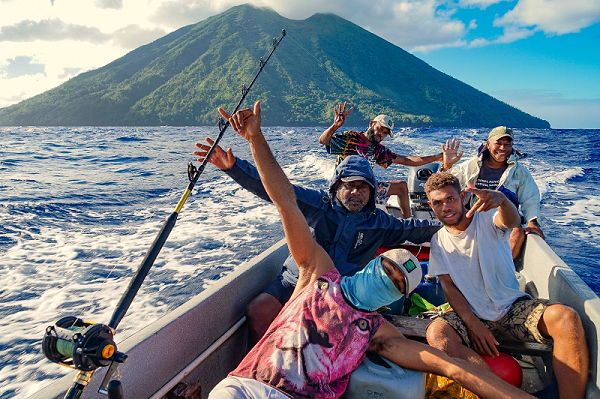
The boat and its crew on the way from Mere Lava to Merig (photo credit: Danny Nef/ETH Zurich)
The idea for this blog was born on a small boat drifting somewhere out on the waters of Vanuatu. That is where my research led me for a five week fieldwork during which I collected data in order to get a better understanding of local food systems and, in particular, to study how they are facing up to climate change, economic shifts and social transformation. The archipelago of Vanuatu lies between New Caledonia, the Solomon Islands, and Fiji in the southwestern Pacific Ocean. The country comprises more than 80 islands, mostly of volcanic origin, spanning a distance of 1100 kilometers.

Mota Lava (left) with the small offshore island Rah (right). On both islands the gardens are central to the livelihood of the local population,
but other sources of income, such as tourism, have resulted in profound socio-economic changes. (photo credit: Danny Nef/ETH Zurich)
but other sources of income, such as tourism, have resulted in profound socio-economic changes. (photo credit: Danny Nef/ETH Zurich)
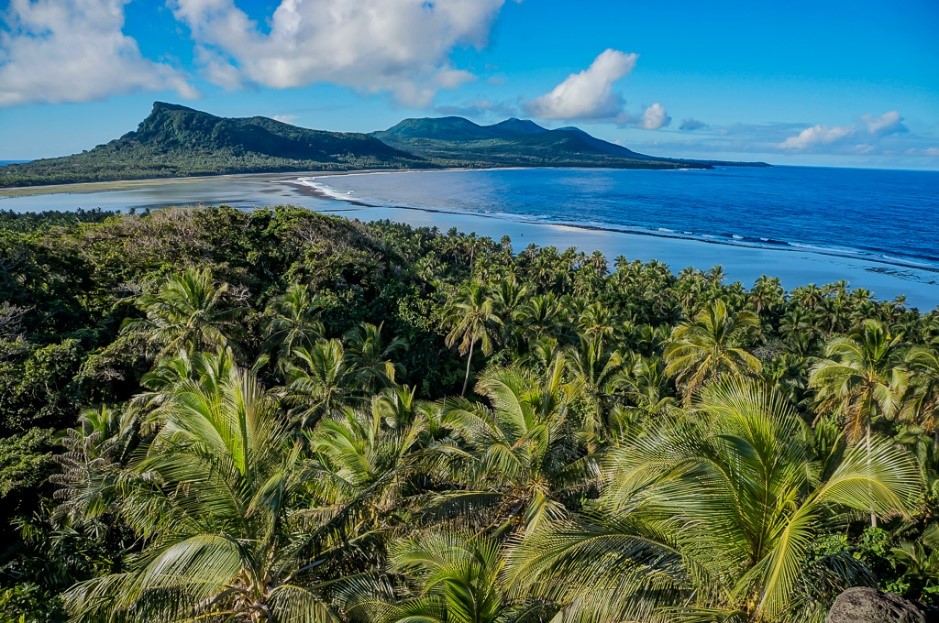
Mota Lava seen from Rah. The many coconut palms witness the formerly main source of income; copra production. However, due to the fall in prices, copra production has largely been abandoned. (photo credit: Danny Nef/ETH Zurich)
The question of shocks and trends, and whether and how they influence horticulture and agriculture in Vanuatu, is relevant since many islanders still live from subsistence farming. Local gardens not only provide food, in numerous cases they also secure an income. Even though farming and gardening practices have adapted perfectly over generations to the relatively stable climatic and socio-structural conditions, shocks and trends of any kind increasingly endanger their yields. The effects of climate change on such an agroecosystem have already become reality in many parts of the Pacific. At the same time, local societies are undergoing deep social and economic changes. For example, both international and national markets are increasingly penetrating remote islands. This new situation not only offers new perspectives, but also has the potential to lead to profound changes in the local subsistence economy.
The way these changes affect agroecosystems in general, and horticulture and agriculture in particular, is largely unknown. Farmers are increasingly reporting severe difficulties in maintaining the productivity of their gardens and plantations. In order to be able to propose effective and target-oriented measures to prevent or deal with these difficulties, it is important to assign them to their underlying cause. The first phase of my fieldwork, which took place on the more developed islands Mota Lava and Vanua Lava, showed how difficult such an assignment is. One possible reason for this is the strong focus on the current debate on climate change. One of the consequences is that many islanders who have participated directly or indirectly in such a discourse usually attribute gardening problems to climate change. For example, some farmers believe that yam, one of the most important local crops, is growing badly because the weather is much drier than it was in the past. Although it may well be true that in the El Niño years, long dry periods negatively influence the growth of yam and other crops, interviews and workshops have also pointed to other possible causes that have nothing to do with climate change. For instance, yam is often planted in seasons that do not conform to traditional practices or current recommendations, in seasons that are actually unsuitable for it. Furthermore, farmers have stopped using rotation techniques, either because the clear-cutting of new land is associated with enormous effort, which people are no longer prepared to make because of other commitments, or because a high population growth has led to a scarcity of land. Farming on the same land repeatedly, however, can have an adverse effect on soil fertility, and with that on the productivity of gardens. We could observe these abandoning of traditional practices especially on islands where the importance of gardens for subsistence had decreased. The reasons for abandoning traditional and recommended practices, on the other hand, are manifold, but in most cases can be traced back to a lack of knowledge or to new access to markets and thus to new production incentives.
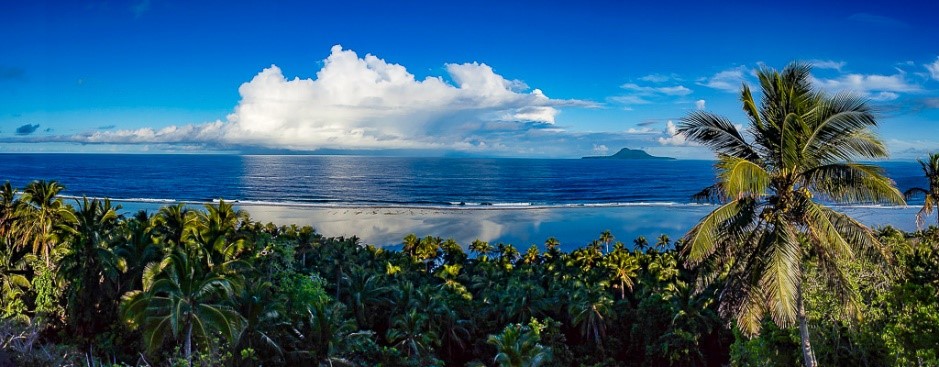
Mota Lava from Rah Island. In the distance, where the cloud is located, lies our destination: Mere Lava (photo credit: Danny Nef/ETH Zurich)
In sum, the first field phase clearly indicated that climate change can indeed have an impact on harvest success. In addition, social and economic changes, which are reflected in changing gardening practices, also have the potential to jeopardize the performance of gardens. In some cases, these changes may even have a greater impact on local livelihoods than climate change.
On Mere Lava, the destination we were heading to when the motor of our boat stopped, there are no such incentives yet and traditional knowledge is still vital due to the island’s remoteness. As a result, farmers on Mere Lava still follow traditional practices. The island will help us to compare and contrast the findings from the more developed islands.
While our skipper tried to fix the motor in the downpour, all these thoughts encouraged me to believe that it will surely be worth the effort to get to Mere Lava. Finally, the rain subsided and we managed to get the engine running again. Then, after two more hours, a perfectly formed cone appeared on the horizon: the extinct volcano of Mere Lava. The second phase of my field work was about to get underway in this exceptional setting, and the memory of the engine failure on the boat evaporated instantly when I set foot on this paradise.
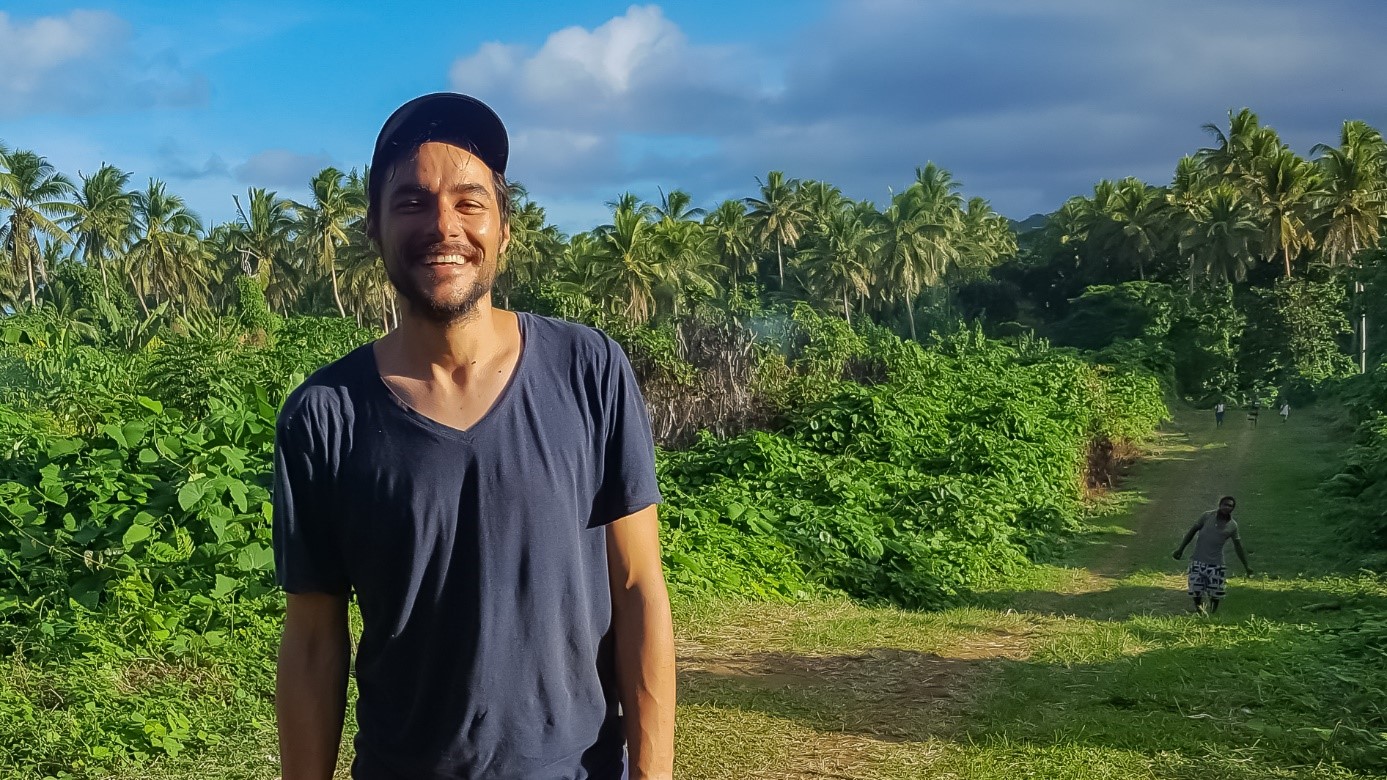
About the author
Danny Nef is a doctoral student at the USYS TdLab and in the Sustainable Agroecosystems Group at ETH Zurich. His doctoral research is funded by ETH Zurich Research Grant and is conducted in collaboration with The University of the South Pacific and the Department of Agriculture of Vanuatu. Danny has been working repeatedly in Vanuatu for the last four years before he started his PhD. His main research interests are in identifying functional relationships and nonlinearities as well as trade-offs inherent in social-ecological systems.


